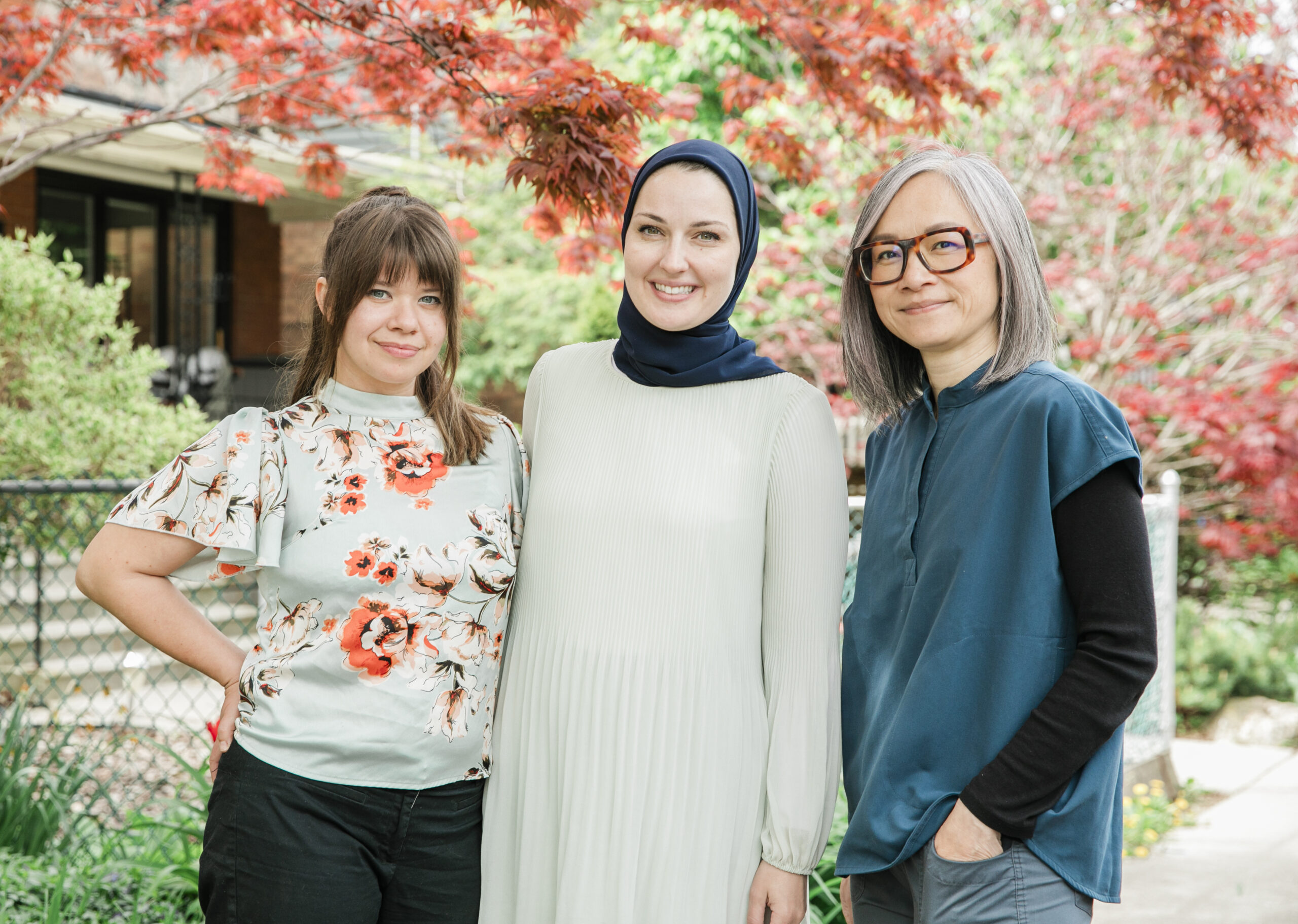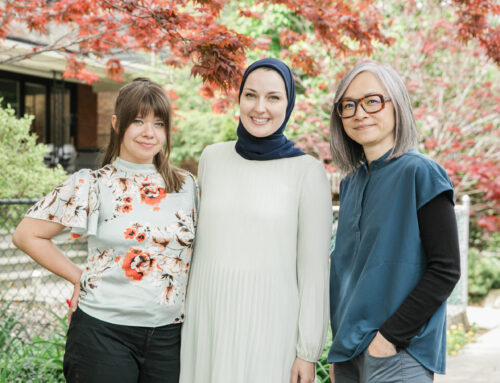Anti-Racism Accessibility in Naturopathic Practice with Dr. Liam LaTouche, ND

Naturopathic Medicine has a lot to offer and individuals seek Naturopathic care for many reasons. Some are looking for drug-free and/or integrative treatment options, some to address the root cause of their illness, and some may simply be curious about the treatment modalities under the Naturopathic umbrella. For others, it may be that a Naturopathic practice can provide a safe, welcoming, and inclusive environment that meets their unique needs and is considerate of barriers to accessing care.
Given the inherent holistic nature of Naturopathic Medicine, it is not uncommon for Naturopathic Doctors to align with and integrate principles and practices of accessibility – or at least strive to do so. This can mean vastly different things to different people. For many, this tends to boil down to affordability given the fact that privatized care of this kind can be cost-prohibitive to those in the community that it would otherwise deeply serve. However, when we take a step back, we can appreciate that the concept of accessibility can encompass much more. When considered within the framework of “Determinants of Health”, we are reminded of the wide range of personal, social, economic, and environmental factors and barriers that influence and impact the health of both individual and community health. These factors include:
- Income and social status
- Employment and working conditions
- Education and literacy
- Childhood experiences
- Physical environments
- Social supports and coping skills
- Healthy behaviours
- Access to health services
- Biology and genetic endowment
- Gender
- Culture
- Race/racism
Examining this topic through the lens of “access to health services” and “race/racism”, we recognize the disproportionate barriers faced by minorities and racially marginalized groups, in addition to ongoing disparities in access to education, wages, housing, and food. This is not a reflection of deficiencies within the character or quality of any of these communities or ethnic groups, but rather a manifestation of systemic racism.
Far from overt acts of racism that often come to mind when exploring this topic, the power of systemic racism lies in its subtlety and structural nature – ingrained in institutions (including medical), economics, politics, and policy. It has been defined as the “macrolevel systems, social forces, institutions, ideologies, and processes that interact with one another to generate and reinforce inequities among racial and ethnic groups”.
Recent highly publicized events, most notably the killing of unarmed Black civilians by police and discovery of innumerable unmarked graves of children from Indigenous communities, have generated an awareness and (re)ignited an interest in dismantling systemic racism in North America. These structural and far-reaching racial inequities have been in place for countless generations, but our society is again faced with an opportunity to drive meaningful change, however big or small, to break oppressive programs and patterns. Naturopathic Doctors are uniquely positioned to participate in this process, especially as it pertains to racism in medicine; the challenge has always been that systemic racism is so ingrained in our medical system that we often do not recognize it, or if we do, we do not know where to start.
This is a massive topic to unpack, and this article will not elucidate the underlying causes of systemic racism (there is an immense body of research on the topic), nor will it be a definitive how-to-guide (there are no hard and fast answers). However, this article will endeavour to prompt honest introspection as it pertains to racism in Naturopathic Medicine and help Naturopathic Doctors orient themselves towards making a positive change in their personal and professional lives.
How Does Systemic Racism Influence Naturopathic Practices?
It can be argued that most health care practitioners are not inherently racist and strive to treat all patients with the same level of respect, care, and service, but operate within an inherently racist system. In addition, there is impact of implicit bias, where preferences and aversions to groups of people may be formed without clear, direct, or even malicious intention.
Despite the commitment of healthcare practitioners to providing equal care, there continues to be disparities in health outcomes for racially marginalized and stigmatized groups. This inequity contributes to increased rates of premature death and decreased overall health3.
Naturopathic practices are susceptible to the influence and impact of these systems of racism. Starting with Naturopathic education that, for example, does not sufficiently include assessment or diagnosis of skin conditions of Black folk and other people of colour, representation of cultural sensitivity, nor acknowledgment of inherent appropriation of traditional medicines/systems of medicine or racism within the medical system.
Within Naturopathic practice, Naturopathic Doctors may engage in practices, or omit considerations, that work to maintain barriers to accessing care for various racial and ethnic groups. For example, services may be cost-prohibitive given the community the clinic serves, clinical staff and faculty may not be culturally or linguistically representative of the community the clinic serves, or clinic decor may be offensive or reflect cultural appropriation. Beyond that, there can be a superiority and elitism surrounding the self-care narrative which does not take into consideration the influence of socioeconomic factors that disproportionately affect racialized and marginalized communities. Further, there can be subconscious cultural appropriation, rather than appreciation, of modalities commonly used in Naturopathy derived from various cultural practices. Finally, given the predominantly non-racialized demographic that accesses Naturopathic care, BIPOC Naturopathic Doctors may feel compelled to engage in “code switching”, whereby they change the way they speak, look, and present themselves to make non-racialized individuals more comfortable and to appear articulate, intelligent, non-threatening, and competent in the eyes of the patient. These examples are only a small representation of how systemic racism can play out in Naturopathic practices.
What Can We Do?
There is a stark difference between “not being racist” and being “anti-racist”. Silence and inaction can be harmful, and the power shift happens when we move from simply not being racist (a passive stance to not engage or perpetuate overt acts of racism) to being anti-racist (an active and intentional process of dismantling systemic racism).
Various research articles and commentary on addressing and dismantling racism in medicine share the same common suggestion: we must first recognize, acknowledge, and understand these systems of racism. Additionally, we need to honestly and openly recognize our own implicit biases. These elements need to be integrated into educational training and institutional policy,, to help dismantle racism and enhance healthcare accessibility.
- Recognize, acknowledge, and understand these systems of racism in medicine
Racial disparities in the medical system are simply a reflection of the much broader and persistent presence of systemic racism in many aspects of life, centred in inequality in access to education, wages, housing, and food. There is a deep rooted colonial historical context that drives and perpetuates these disparities. Those looking to better understand the presence, history, and implications of racial disparities in healthcare are encouraged to review Unequal Treatment: Confronting Racial and Ethnic Disparities in Health Care10.
- Recognize and unlearn implicit bias
Edgoose et al outlined eight strategies to combat our own implicit biases:
Source: Edgoose JYC, Quiogue M, Sidhar K. How to Identify, Understand, and Unlearn Implicit Bias in Patient Care. Fam Pract Manag. 2019 Jul/Aug;26(4):29-33.
- Considerations for Naturopathic training and practice
The inclusion and integration of cross-cultural education into Naturopathic training is fundamental. In addition, education on aspects and consequences of colonial history (e.g. appropriation of traditional medicine or Indian Hospitals), implicit bias, and tools for effective communication and relationship building with racialized and marginalized communities will provide context for understanding racial and social inequalities.
From a clinical perspective, Washington et al have outlined strategies to transform clinical practices to eliminate racial-ethnic disparities. This list has been been modified to apply to Naturopathic practices, and encompasses the following:
- Financial aspects of healthcare delivery
- Prescribe lower cost, equally effective supplements and medications
- When applicable, provide patients with information on community health centres and/or social work departments
- Incorporate insurance, direct billing, a sliding scale, and/or flexible payment plans
- Host free community events
- Structural aspects of clinical practice
- Hire clinical and office staff who are culturally and linguistically representative of the communities your practice serves
- Market or advertise the diversity of the office and clinical staff, emphasizing the presence of multilingual staff as a way to recruit diverse staff and inform patients
- Explore the current organizational climate, culture, policies, and training related to diversity in your practice setting
- Review the decor and substitute potentially offensive pieces with more culturally appropriate decor
- Communication and cultural/linguistic competence
- Utilize a Indigenous Land Acknowledgement, a formal statement recognizing and respecting Indigenous Peoples as traditional stewards of this land and the enduring relationship that exists between Indigenous Peoples and their traditional territories
- Have available signage, language services, and printed patient information material that is appropriate for the cultures, languages, and literacy levels of patients in your practice
- Have available signage, language services, and printed patient information material that is appropriate for the cultures, languages, and literacy levels of patients in your practice
- Provide training for providers in patient-centered communication skills that focus on increasing participatory decision-making
- Provide cultural competence training for providers and staff in your setting
- Quality of care monitoring and assessing patient views of care
- Measure the quality of care delivered in your clinical setting stratified by patient race–ethnicity
- Assess patient perceptions of care, e.g., using periodic self-administered surveys
- Provide a “suggestions box” so that patients can provide immediate feedback at the time of their visit
Additionally, with respect to Indigenous communities, there is also the need for greater access to health systems that incorporate traditional medicines and foods.
Finally, for those in an allyship role, it is important to recognize that White privilege is a component of White supremacy, developed over many eras of colonial expansion. There is work to be done to learn how you are seen in the world and how you see yourself, so you can break the pattern. Being non-racist is simply not enough and the process of anti-racism similarly starts with recognition, acknowledgement, and understanding that systemic racism exists and of one’s implicit bias.
Final thought:
When dealing with an overwhelming topic such as this (whether you are BIPOC or an ally), a starting point can simply be to sit with your own experiences, fears, and hopes. Maintain an open heart and mind, recognizing that we cannot solve this problem with the same thinking that created it.
We often approach these kinds of situations in a reductionistic problem solving manner. However, if we shift from “problem solving” to “appreciative inquiry”, we open up to broader possibilities when navigating a situation like this. A problem solving approach operates under the basic assumption that systemic racism is a problem to be solved. However, appreciative inquiry operates under the assumption that community and equality is a mystery to be embraced. Appreciation is a process of affirmation and an act of attention and creating change by paying attention to what you want. Appreciation helps groups generate images for themselves based on an affirmative understanding of their past to co-construct the future. The process involves appreciation and valuing the best of what is, envisioning what might be, dialoguing what should be, and innovating what will be.
Additional resources:
- General:
- NDs Dismantling Racism
- Accessible Practice Directory
- OAND Panel Discussion
- Courses with Laura Batson, ND
- Liberating Curvature
- (Re)membering Circles: Decolonizing Minds and Medicine
- Writing a Land Acknowledgement
- Organizations supporting anti-racism/oppression:
- Alliance for Healthy Communities
- Black Health Alliance
- Black Physicians Association of Ontario
- Indigenous Cultural Competency (ICC) Training Program
- TAIBU Community Health Center
- Urban Alliance on Race Relations
- NDDR Book List (shortlist):
- Allyship:
- Me and My White Supremacy – Layla Saad
- Bridging traditional and modern systems of medicine:
- The Science of Sacred – Nicole Redvers, ND
- Education reform:
Share this article
Written by : TL Reside
Latest articles
July 12, 2025




